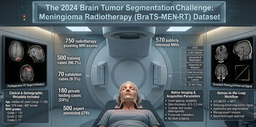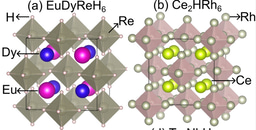Harnessing home technology for people living with dementia
Published in Research Data
Explore the Research

TIHM: An open dataset for remote healthcare monitoring in dementia - Scientific Data
Scientific Data - TIHM: An open dataset for remote healthcare monitoring in dementia
Smart home technologies are transforming all our lives – from voice-operated home assistants to thermostats and security systems. These devices can offer increased comfort, convenience, and peace of mind to consumers. Something many may not have considered, however, is that low-cost, connected devices could transform the way we care for vulnerable people, including people affected by dementia.
There is a need for increased support for people affected by dementia, and technological solutions are emerging, but these present a challenge in the vast amount of data they collect. In this study, led by the Surrey and Borders Partnership NHS Healthcare Trust and in collaboration with the UK Dementia Research Institute (UK DRI) Care Research & Technology Centre, Imperial College London and the University of Surrey, we present data collected from the homes of people living with dementia associated with baseline codes for developing analytical models to personalised in-home health and care support.
Dementia is a complex condition that affects millions of individuals worldwide, causing cognitive decline, memory loss, and attention problems. In the UK, we have an ageing population, and the number of people affected by dementia is expected to rise from 900,000 to 1.6 million by 2040, according to a 2019 report commissioned by Alzheimer’s Society.
As well as the hallmark memory decline, dementia also brings about behavioural and psychological symptoms, such as sleep disturbances, agitation, and apathy. Additionally, a significant number of unplanned hospital admissions for people living with dementia are due to preventable causes like severe urinary tract infections, falls, and respiratory issues. These issues not only impact the health and well-being of those with dementia but also place immense stress on carers and healthcare services. Providing timely and effective interventions is a critical challenge in dementia care, necessitating frequent, reliable, and privacy-conscious monitoring of people affected by dementia.
The project, known as the Technology Integrated Health Management (TIHM) project, harnessed low-cost Internet of Things (IoT) sensing technologies to enable predictive and proactive in-home healthcare monitoring. Using smart solutions, the TIHM platform enabled us to develop artificial intelligence-supported methods that can provide personalised care early on in someone’s illness.
In the TIHM project, we utilised remote devices to collect vital signs (such as heart rate and body temperature), environmental data (such as room temperature), and activity information to monitor the day-to-day well-being of people with dementia. These technologies serve a dual purpose: they help people with dementia maintain their independence for longer periods and provide carers and clinicians with useful evidence-based insights that could alleviate potential anxiety and depression in those affected by dementia.
One of the major hurdles in current remote systems is the diversity of underlying devices and technologies available for monitoring. Different devices use varying data formats and proprietary interfaces, making it challenging to integrate information from various sources and process them in real time. This diversity can hinder efforts to extract patterns, detect anomalies, and perform predictive analysis using integrated data from different digital sources.
This is one of the major advantages of the THIM project with integration of data from various sources and modalities, transforming in-home monitoring applications and creating intelligent decision-making support systems using routinely collected data. Machine learning models help to address the partially labelled, multi-modal, noisy, and dynamic data.
We introduce the TIHM dataset collected during the feasibility study phase of the project, from the homes of 56 people living with dementia. This dataset includes anonymised information on daily activities, sleep patterns, clinical and physiological data, as well as labelled health events. The TIHM dataset offers a valuable resource for researchers aiming to develop analytical and machine learning solutions for continuous healthcare monitoring, especially in dementia care.
It also serves as preliminary data for designing and validating methods that analyse multi-modal data with sparse annotations for healthcare monitoring applications. For instance, researchers can explore the development of new AI methods for detecting vital sign abnormalities, neuropsychiatric symptoms, social isolation, and functional decline.
The project represents a significant step forward in dementia care by leveraging Internet of Things and machine learning technologies to provide proactive and personalized monitoring. By addressing the challenges of remote monitoring and offering a rich dataset for research, TIHM opens up new possibilities for enhancing the well-being of individuals with dementia and their caregivers and could even be used beyond dementia to support other vulnerable people living at home. This innovative approach holds the promise of revolutionising care, improving the quality of life for those affected by dementia and other conditions.
Palermo, F., Chen, Y., Capstick, A. et al. TIHM: An open dataset for remote healthcare monitoring in dementia. Sci Data 10, 606 (2023). https://doi.org/10.1038/s41597-023-02519-y
Follow the Topic
-
Scientific Data

A peer-reviewed, open-access journal for descriptions of datasets, and research that advances the sharing and reuse of scientific data.
Related Collections
With Collections, you can get published faster and increase your visibility.
Data for crop management
Publishing Model: Open Access
Deadline: Apr 17, 2026
Genomics in freshwater and marine science
Publishing Model: Open Access
Deadline: Jul 23, 2026



Please sign in or register for FREE
If you are a registered user on Research Communities by Springer Nature, please sign in